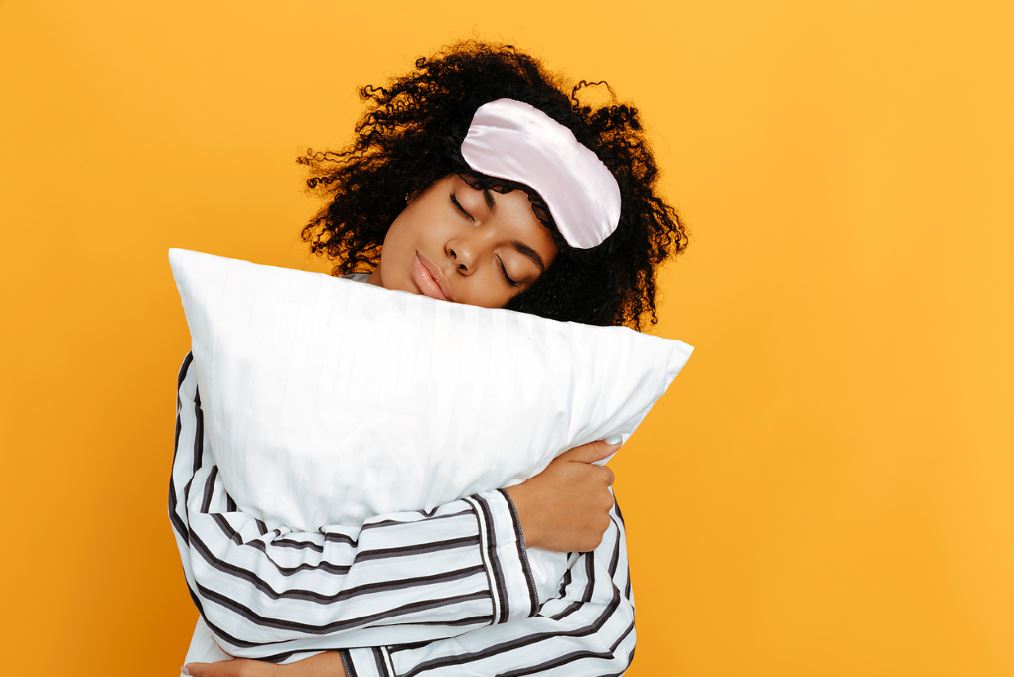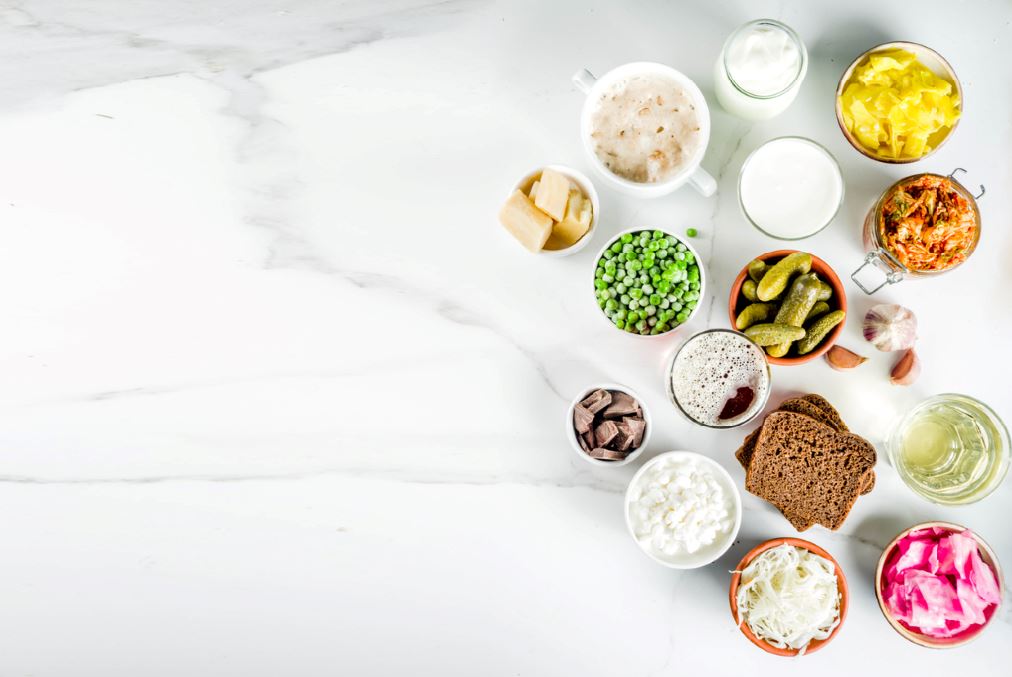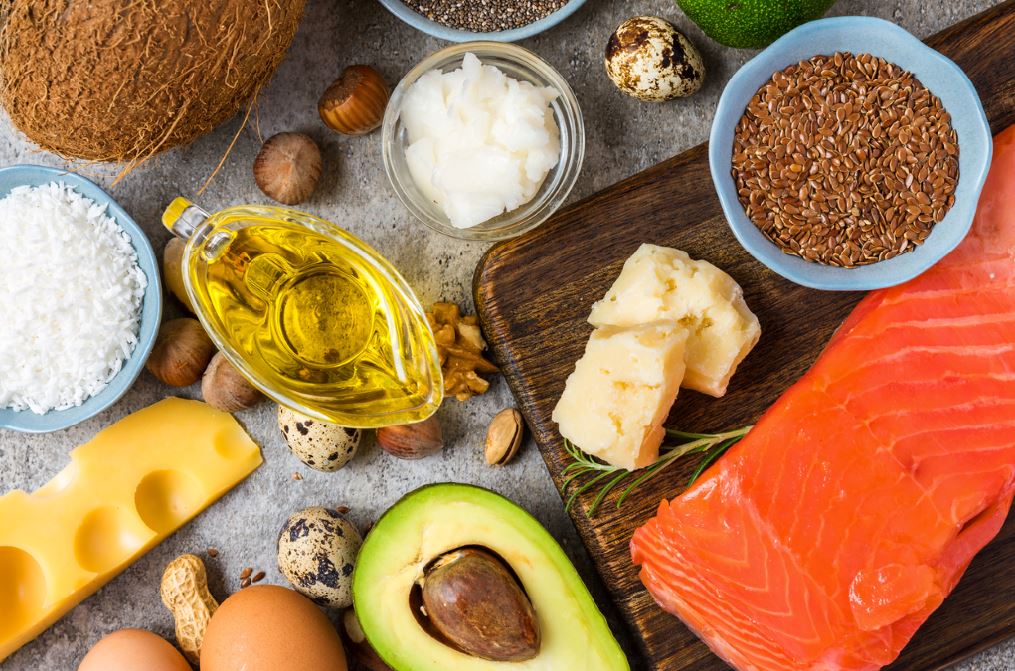Hormone imbalance symptoms? Wondering where to begin on how to balance hormones? Health Coach and Mindfulness Teacher Louise Murray reveals 10 simple lifestyle hacks that are proven to help
Hormonal imbalance can result in bloating, sore breasts, headaches, skin issues, sleep disturbances, weight gain and more.
All these symptoms are typically associated with that well-known term, ‘hormonal’.
Hormones have profound effects on your mental, physical and emotional health. These chemical messengers play a major role in controlling your appetite, weight and mood, among other things.
Hormones have profound effects on your mental, physical and emotional health
When we think ‘hormones’, we usually think about the sex hormones testosterone or oestrogen, but there are actually more than 50 different hormones circulating inside your body right now.
For example, your thyroid hormones oversee your metabolism, energy levels, and temperature; while cortisol, plays a role in your response to physical and psychological stress.
When your hormones are balanced and working in sync, you won’t notice them. It’s when they’re imbalanced that you could start seeing cascading health issues take over.
Causes of hormonal imbalance
There are a few main causes of hormonal imbalance, and they’re not uncommon. Firstly, medical conditions (diabetes, hypoglycaemia, thyroid disorders, menopause etc), as well as the medications or treatments for those conditions can all impact your hormones.
Other causes of imbalance include injury, trauma, or eating disorders. There are also a number of certain lifestyle habits and environmental factors that can play a role in hormonal imbalances.
Hormone balance is deeply connected to the food we eat, the exercise we get, the toxins we absorb, the weight we carry, and the stress levels we put up with.
![poor sleep hormonal imbalance]](https://desyrel.eu/wp-content/uploads/2020/09/poor-sleep-hormonal-imbalance.jpg)
Tired all the time? Poor sleep can contribute to hormonal imbalance
Hormonal imbalances have become increasingly common with today’s fast-paced modern lives, toxins and unbalanced lifestyles, some of the main lifestyle culprits include:
- Chronic or extreme stress
- Poor diet and nutrition
- Being overweight
- Poor sleep
- Lack of or excessive exercise
- Reliance on stimulants and depressants like caffeine, sugar and alcohol
- Abuse of anabolic steroid medications
- Over exposure to phytoestrogens (naturally-occurring plant oestrogens found in soy products)
- Exposure to toxins, pollutants, and endocrine disrupting chemicals, including pesticides and herbicides
One of the most common causes of hormonal imbalance is stress — which is unfortunately a stranger to no-one.
One of the most common causes of hormonal imbalance is stress
If stress takes centre stage in our lives and becomes chronic, cortisol floods our system and total hormone production lags.
This forces the body to steal from its own supplies of available progesterone, to make more cortisol, thus depleting this key balancing hormone with obvious implications for oestrogen dominance.
How to restore hormone balance
Exercise, sleep, good food and reducing your stress are just some of the ways we can help to balance our hormones.
While hormonal imbalances sometimes require working with an endocrinologist or another specialist, you have tremendous power over balancing your hormones naturally yourself.
When you support a healthy diet with the right nutrients and lifestyle factors, you can dramatically improve hormone balance.
These 10 strategies provide a solid starting point for helping to bring your hormones back into your control…
How to balance hormones #1 Reduce or eliminate sugar and other food sensitivities
Sugar keeps insulin elevated, knocking other hormones out of balance and paving the way for insulin resistance.
Food sensitivities, including gluten intolerance can also increase inflammation and contribute to hormonal imbalances, including elevated cortisol. Research shows that a healthy gluten-free diet can reduce inflammation and insulin resistance.
Consider working with a healthcare professional to develop an elimination diet based around our bio-individual needs to see if your symptoms improve.

Cutting back on your sugar consumption may help to balance out your hormones
How to balance hormones #2 Balance your stress levels
Chronic stress is all-around bad news for hormonal balance, as it can create or exacerbate hormonal imbalances.
Research has shown that six-months of practicing biweekly meditation could improve insulin levels, while also improving stress levels.
Chronic stress is all-around bad news for hormonal balance
If meditation sounds boring to you, the good news is, research has shown that what really matters is what helps you de-stress. That could be yoga, deep breathing, or taking your dog for a walk.
De-stressing is not a cookie-cutter process that will work the same in every person, so feel free to explore your options and see what works the best for you.
How to balance hormones #3 Address your consumption of potential toxins and chemicals
We are bombarded daily with chemicals nearly everywhere — in the air we breathe, the food we eat, and the products we put on our bodies.
Many of these chemicals are considered endocrine or hormone disruptors because they interfere with hormonal production and create wide-ranging damage.
Among them include bisphenol A (BPA), found in plastic water bottle and cans, which can disrupt multiple hormonal pathways. Xenoestrogens, chemical compounds that mimic oestrogen, can impact testosterone and oestrogen production.
Consider working with a healthcare professional on a professionally designed detoxification program.
How to balance hormones #4 Get good quality sleep
Sleep disturbances can contribute to numerous problems including hormonal imbalances. Getting optimal sleep levels can be a challenge in today’s plugged-in society.
Sleep hygiene can help, for optimum hormonal balance, you should be:
- Going to bed and waking up at the same time every day as often as you can
- Decreasing blue light at night
- Getting sunlight in the morning, and throughout the day as often as possible
- Drinking water first thing in the morning
- Creating a bedtime ritual

‘Sleep disturbances can contribute to numerous problems including hormonal imbalances’
How to balance hormones #5 Be sure to exercise regularly
The right amount and kind of exercise can positively impact nearly every hormone, including positively influencing insulin levels.
Exercise can also boost growth hormone, your ‘fountain of youth’ hormone that keeps you lean and energetic.
While many studies have looked at the benefits of higher-intensity exercise for hormone balance, what matters ultimately is what you actually enjoy because then you are more likely to stick to it regularly.
How to balance hormones #6 Eat plenty of gut friendly foods
According to research published in the Journal of Medicinal Food in 2014, many hormones are actually produced by the beneficial bacteria in the gut (the microbiome).
Help keep your gut healthy with a balanced diet, abundant in fruits, vegetables and whole foods.
Add fermented foods like kefir, kombucha, miso, sauerkraut and kimchi to your diet, which have been shown to increase the number of friendly bacteria in your gut. A healthy gut will help the synthesis and regulation of your hormones and neurotransmitters.

‘A healthy gut will help the synthesis and regulation of your hormones and neurotransmitters’
How to balance hormones #7 Take a magnesium supplement
This essential mineral is a muscle relaxant, known to help reduce stress and tension, and promote better sleep. It’s known to be useful for relieving PMS and menstrual cramps too.
A study by the University of Edinburgh in 2015 reported that magnesium also helps regulate our body clocks, which stabilises hormone release throughout the day and night.
Try: Healthspan Magnesium, available to buy on Amazon, £8.95
How to balance hormones #8 Try adaptogens too
This group of herbs may help the body adapt to stress and regulate hormones. They are known to help stabilise blood sugar and insulin, improve mood and support adrenal gland and thyroid function.
Ashwagandha and rhodiola are particularly useful for managing stressful situations.
Try Higher Nature’s Ashwagandha and Rhodiola Complex, available to buy on Amazon £14.75.
How to balance hormones #9 Add plenty of clean protein to your diet
The foods we eat play a big role in hormone balance. Our hormones are made using amino acids from protein and fatty acids from fats. The better quality materials we use, the better quality hormones our body creates.
Variety is as equally important. Every type of food has a different structure and offers a different group of macronutrients. To keep our systems balanced, we need everything in the right amounts. Too much of one macronutrient can throw off the balance of another.
Our hormones are made using amino acids from protein and fatty acids from fats
Protein is an essential component of all hormones plus it also balances hormones via the amino acid arginine, which slows insulin.
Clean protein is key though. Eating a diet high in poor quality meat is also linked to oestrogen dominance. It’s no surprise that vegetarians and vegans have much lower oestrogen levels, a better hormone balance and are likely to experience less inflammation than their carnivore sisters.
To be clear there is a massive difference between CONSCIOUS meat-eating; grass fed, organic and ethically farmed meat and dairy VS mass produced poorly farmed, hormone and antibiotic fed meat and dairy.

Adding clean protein and healthy fats to your diet will help to balance your hormones
How to balance hormones #10 Healthy fats are a diet necessity too
Hormones are produced from fat and cholesterol, so consuming fat is crucial for hormone health. Fats also aid the absorption of vitamins A D E and K and nutrient deficiency can cause hormone imbalance in itself.
It’s the quality of fat that matters, great choices include:
- Olive oil
- Coconut oil, as well as coconut milk and coconut butter
- Grass-fed ghee or butter (unless sensitive to dairy)
- Animal fats from grass-fed animals
- Avocados
- Nuts & seeds and nut & seed butters
- Organic cow or goat/sheep dairy (full-fat cheese, full-fat raw milk, kefir)
- Fish oil or cod liver oil

Louise Murray is a Holistic Health Coach with the qualification from the Institute of Integrative Nutrition and a Mindfulness Teacher.
She takes a truly holistic approach to health and wellness by nourishing people ON and OFF the plate by coaching them with nutrition advice combined with lifestyle and behaviour change, healthy habit formation, mindset tools, mindfulness and self-care practices
Follow Louise on Instagram: @live_well_with_lou
Relevant Healthista Content:
5 healthy recipes to help balance your hormones
Are your hormones making you bloated?
11 everyday things that damage your hormones
4 hormones that help you lose weight from exercise – Body Transformation Week 10
Healthista Content you may also like:
Save the Planet: 12 climate-friendly food swaps you can make today
How to be happier: 5 tips this happiness guru wants you to know about
